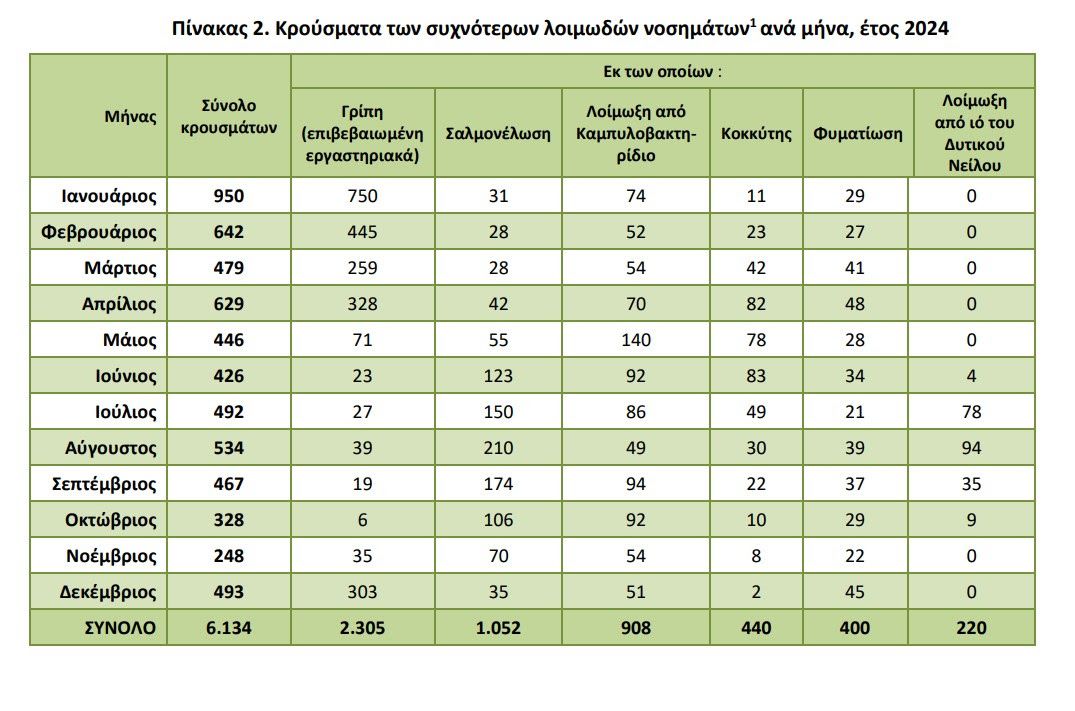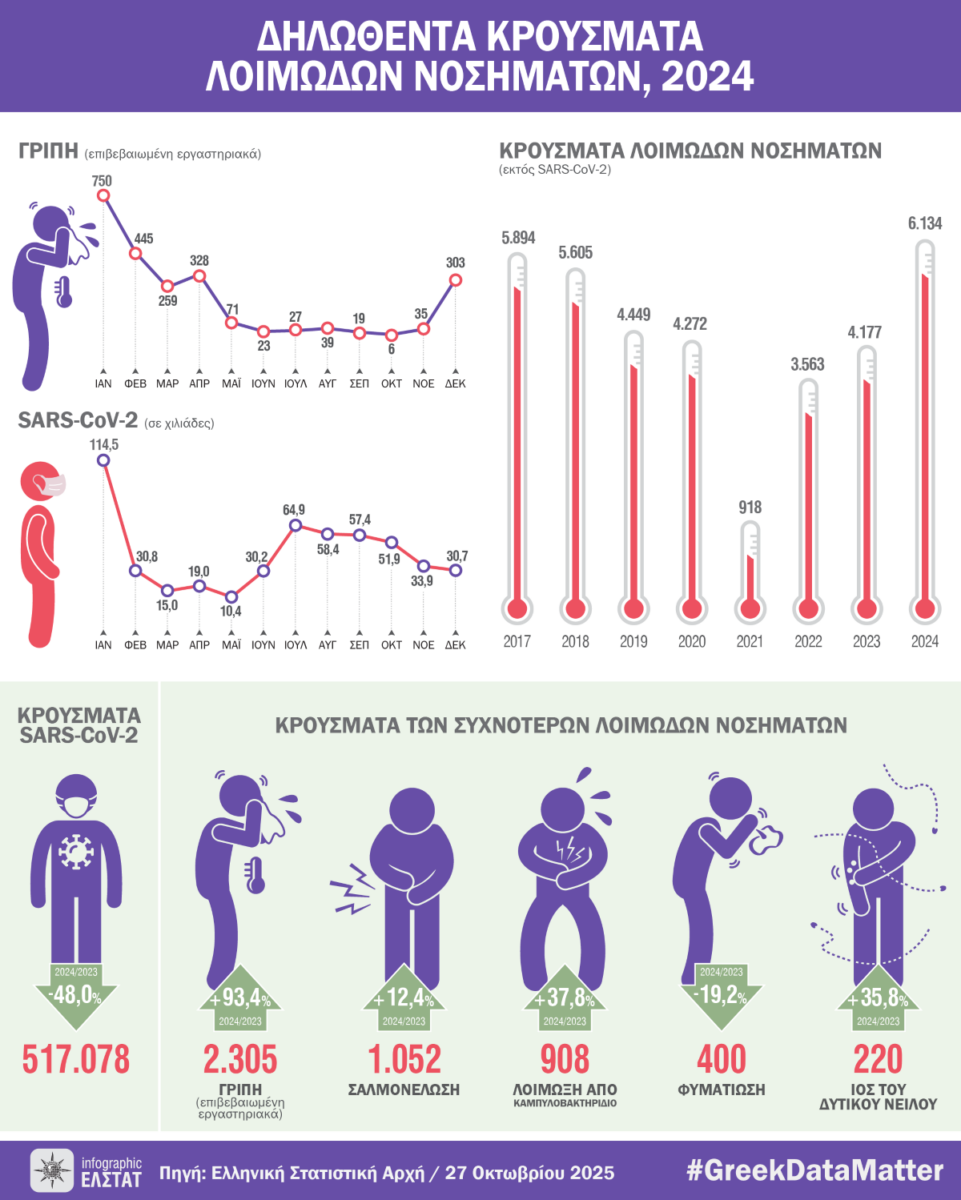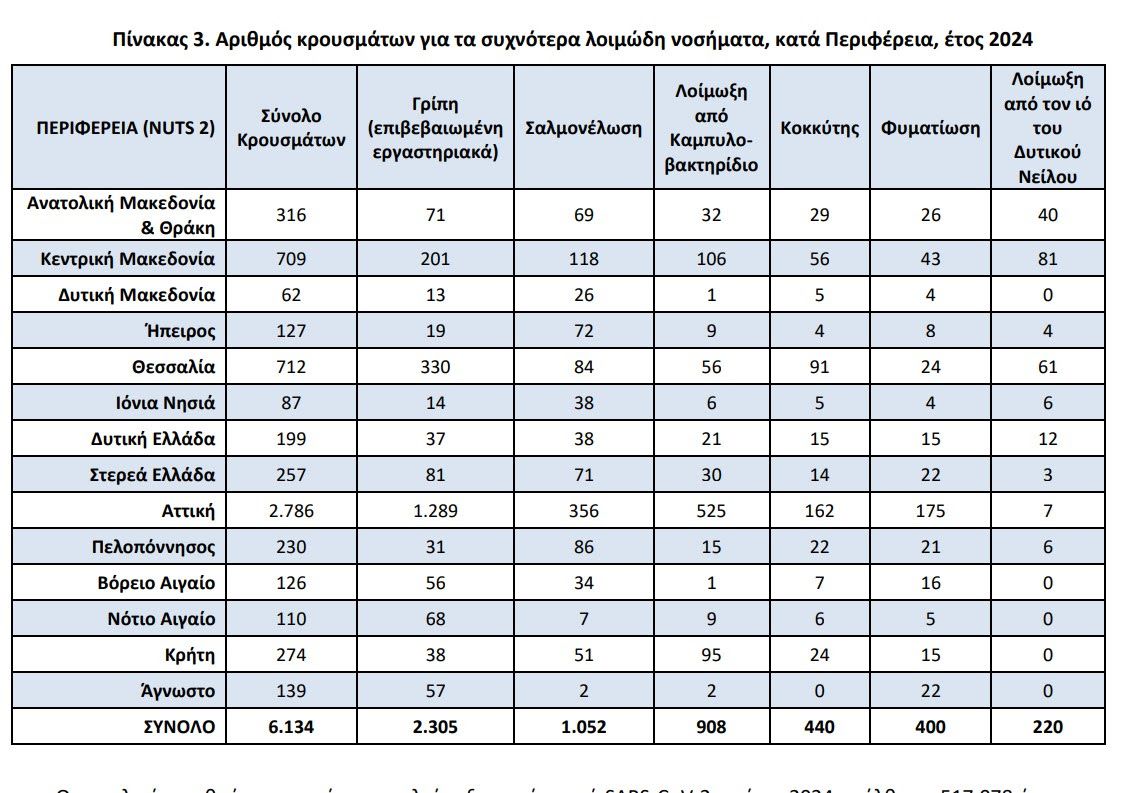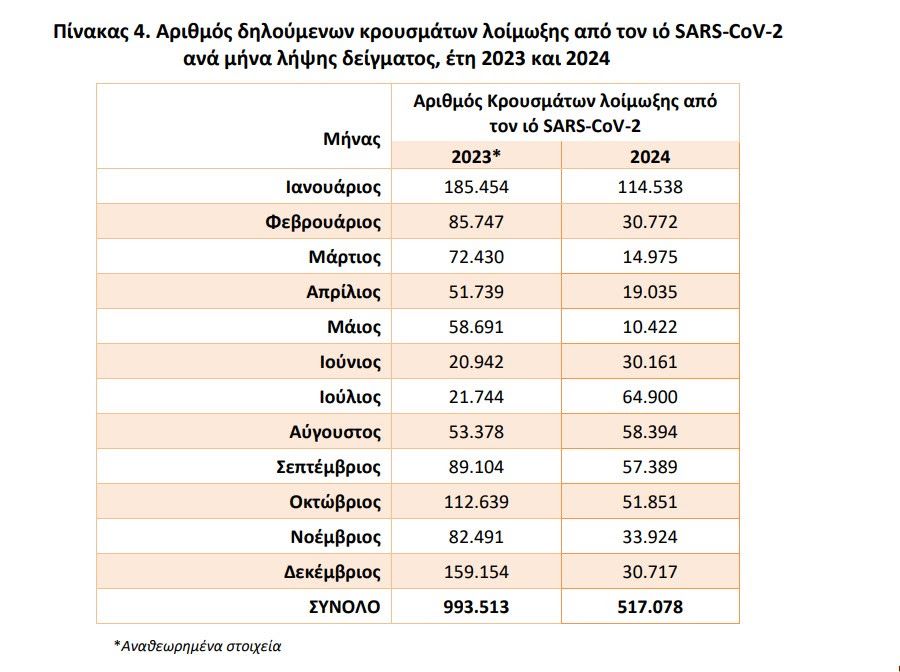Infectious diseases in Greece have shown a sudden increase in the last year, while Attica is in the “eye of the cyclone” with the most cases in almost all infections.
Alarming data on the course of infectious diseases in the country in 2024 is recorded by the Hellenic Statistical Authority (ELSTAT), based on the data of the National Public Health Organization (EODY).
According to the official report, reported cases of infectious diseases reached 6,134 in 2024, compared to 4,177 in 2023, an explosive increase of 46.9% in just one year.
Influenza and salmonella “champions” of infections
Influenza emerged as the most common infection in 2024, with 2,305 laboratory-confirmed cases, compared to 1,192 in 2023, with an increase of 93.4%.
The disease exhibited strong seasonality in the winter months, peaking in February and declining in the spring.
Salmonellosis, the most common foodborne infection, also registered an alarming rise, with a 12.4% increase compared to 2023. Most incidents occurred in the summer months, from June to October.

A significant burden was also presented by:
Campylobacter infection, with 908 cases (+37.8%)
Whooping cough, with 440 cases (versus just 12 in 2023)
West Nile virus, with 220 cases (+35.8%)
In contrast, tuberculosis showed a decrease of 19.2%.


Where is the highest burden recorded?
Attica gathers the lion’s share of most infectious diseases, confirming its designation as the “epicenter” of epidemiological activity in the country.
In detail:
Flu: 1,289 cases in Attica, 330 in Thessaly, 201 in Central Macedonia
Salmonellosis: 356 in Attica, 118 in Central Macedonia, 86 in Peloponnese
Campylobacter: 525 in Attica, 106 in Central Macedonia, 95 in Crete
Kokkytis: 162 in Attica, 91 in Thessaly
Tuberculosis: 175 in Attica, 43 in Central Macedonia, 26 in North Macedonia & Thrace
West Nile virus: 81 in Central Macedonia, 61 in Thessaly
The image confirms that Attica and Central Macedonia are the most burdened regions in almost all diseases, while Thessaly shows strong activity in influenza and West Nile.


The coronavirus has not gone away
Despite the gradual de-escalation of the pandemic, SARS-CoV-2 remains present.
In 2024, 240,758 cases were recorded in Attica (46.6% of the total), 66,551 in Central Macedonia (12.9%), followed by Thessaly (31,204) and Western Greece (31,020) with a percentage of 6%.


The overall increase of almost 50% in infectious diseases within one year highlights the need to strengthen prevention and surveillance mechanisms, but also to better inform the public about hygiene and vaccination measures.
The resurgence of whooping cough and the rise of foodborne infections underscore that the risks haven’t gone away — they’ve just changed, experts say.
Source: iatropedia.gr
